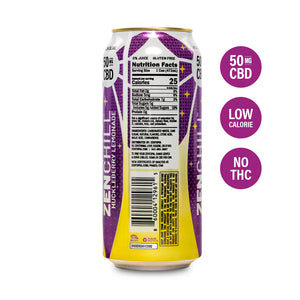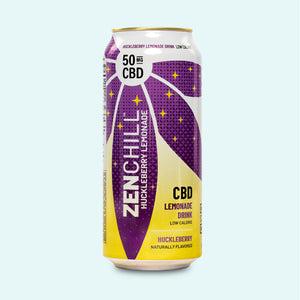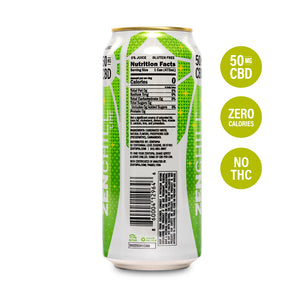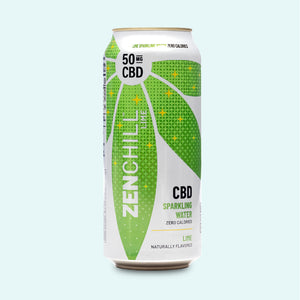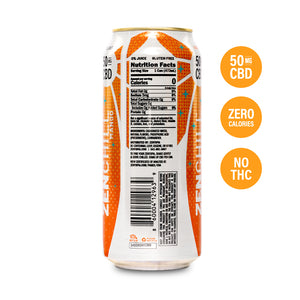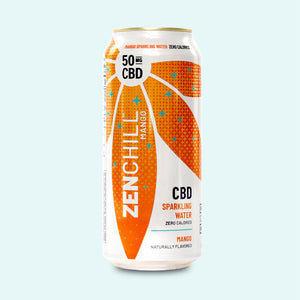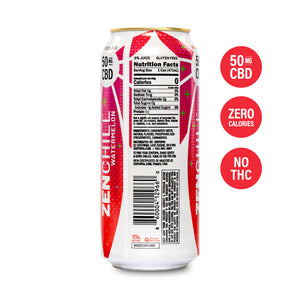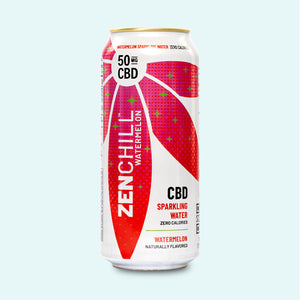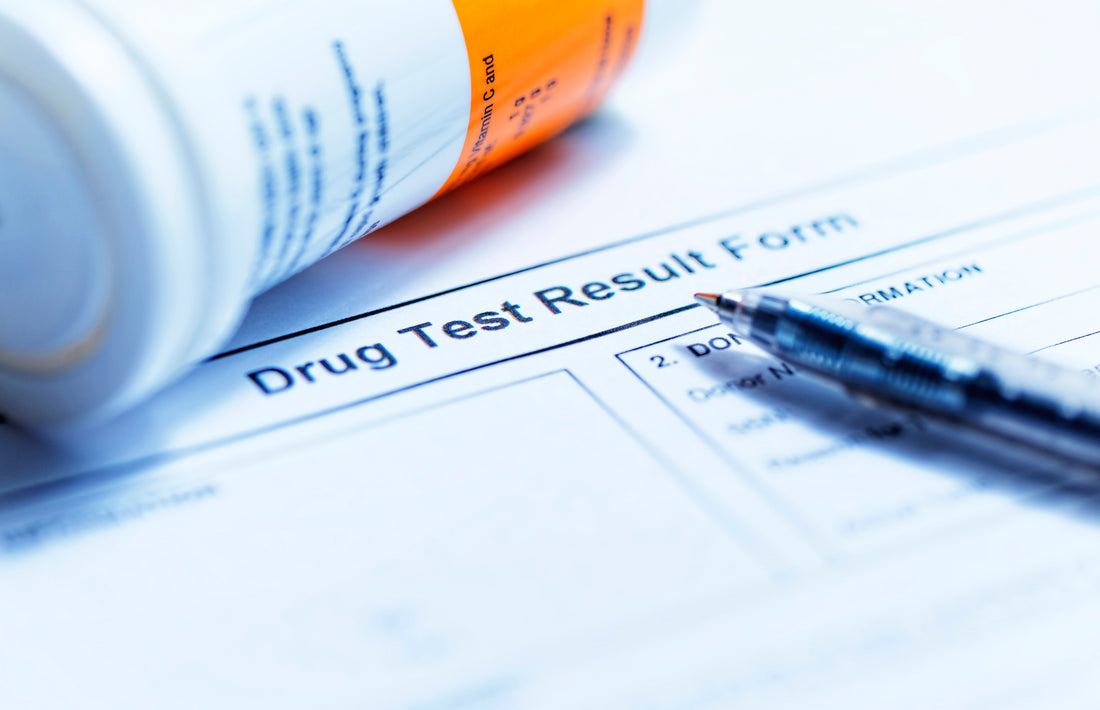
Does CBD Show Up on Drug Tests?
Curious about whether CBD can affect your drug test results? You're not alone. As CBD continues to gain popularity for its myriad health benefits, a common question arises: "Does CBD show up on drug tests?" Given that sleep, anxiety, and pain relief are just some of the reasons people turn to CBD, understanding its implications for drug testing is crucial. This blog post aims to explore the relationship between CBD and drug tests, delving into how CBD can potentially impact test results, the types of CBD products that may show up, and ways to minimize your risk. Let's dive into the details and clear up the confusion surrounding CBD and drug tests.
Understanding CBD and Drug Testing
What is CBD?
CBD, or cannabidiol, is a compound found in the cannabis plant. Unlike THC (tetrahydrocannabinol), CBD is non-intoxicating and doesn't produce a "high." It has gained popularity for its potential therapeutic benefits, including reducing anxiety, relieving pain, and improving sleep.
How Drug Tests Work
Drug tests are designed to detect the presence of specific substances in the body. They come in various forms, including urine, blood, hair, and saliva tests. Each type of test has its detection window and level of sensitivity.
- Urine Tests: Most common and detect recent drug use.
- Blood Tests: More invasive, used to detect current impairment.
- Hair Tests: Can detect drug use over a longer period (up to 90 days).
- Saliva Tests: Used for detecting recent use, similar to urine tests.
Drug tests typically screen for substances like THC, opiates, cocaine, amphetamines, and benzodiazepines. However, they do not usually test for CBD.
Does CBD Show Up on Drug Tests?
Primary Target of Drug Tests
When it comes to drug testing, the primary target is THC, not CBD. THC, or tetrahydrocannabinol, is the psychoactive compound found in cannabis that causes the "high" sensation. Drug tests are designed to detect THC and its metabolites, as these indicate recent cannabis use and potential impairment. CBD, on the other hand, is non-intoxicating and is generally not the focus of drug tests. This is why, for the most part, CBD will not show up on a drug test.
Potential for THC Presence in CBD Products
However, the story doesn't end there. The type of CBD product you use can influence whether THC is present in your system. Full-spectrum CBD products contain a range of cannabinoids, including THC, within the legally allowed limit of 0.3 percent or lower. Although this amount is minimal, it's possible for THC to accumulate in the body over time, potentially leading to a positive drug test result.
A study examining 80 unregulated CBD products found that 52 of them contained measurable amounts of THC, even those labeled as "THC-free." If you regularly consume full-spectrum CBD products, it's unlikely but possible for THC to build up in your system and show up on a drug test. Therefore, it's crucial to be aware of the type of CBD product you are using, especially if you are subject to drug testing. But don’t stress! All of Zentopia’s CBD drinks use 100% CBD isolate which does not get flagged on a drug screen. Plus, we have our ingredients tested by a third-party lab before each batch, post our Certificates of Analysis (COA) so you can have full confidence when enjoying our delicious CBD bevy’s.
Which CBD Products Might Show Up on a Drug Test?
Full-Spectrum CBD Products
Full-spectrum CBD products contain a range of cannabinoids, including THC, within the legal limit of 0.3 percent. Despite this small amount, there is a potential for THC to accumulate in your system over time, especially with regular use. This accumulation can increase the risk of a positive drug test result.
Broad-Spectrum CBD and CBD Isolates
Unlike full-spectrum CBD, broad-spectrum CBD undergoes an additional refining process to remove all traces of THC while retaining other beneficial cannabinoids and terpenes. This makes broad-spectrum CBD a safer option for those concerned about drug tests. Similarly, CBD isolates contain pure CBD without any other cannabinoids, including THC, making them the least likely to result in a positive drug test.
Minimizing the Risk of Failing a Drug Test
Tips for Safe CBD Consumption
- Choose High-Quality Products: Only purchase CBD products from reputable brands that prioritize quality and transparency. Look for products that have undergone third-party testing to ensure their potency and purity.
- Start with a Low Dosage: Begin with a low dose and gradually increase it as needed. This allows you to gauge your body's response to CBD and determine the optimal dosage.
- Follow Product Instructions: Carefully read the product label and follow the manufacturer's instructions regarding dosage and consumption methods.
- Be Mindful of Drug Interactions: CBD can interact with certain medications. Research potential interactions if you are taking other drugs.
- Avoid Full-Spectrum CBD: If you're concerned about THC content or drug testing, opt for THC-free alternatives like broad-spectrum CBD or CBD isolates.
- Observe Your Body's Response: While CBD is generally well-tolerated, monitor your body's reaction. If you experience any adverse effects, stop using CBD.
- Store CBD Products Properly: To maintain the quality and potency of your CBD products, store them in a cool, dry place away from direct sunlight and heat.
- Observe Local Laws and Regulations: CBD regulations vary by location. Always ensure you comply with local laws and regulations regarding CBD usage and transportation.
Personal Experiences and Case Studies
Anecdotal Evidence
Many individuals have shared their experiences with CBD and drug testing. For instance, some users of full-spectrum CBD products have reported positive drug test results due to the trace amounts of THC. On the other hand, users of broad-spectrum CBD and CBD isolates rarely report such issues.
Case Studies
Case Study 1: A study involving 100 participants using full-spectrum CBD products found that 5% tested positive for THC during routine drug screenings. This underscores the importance of being mindful of the type of CBD product you use.
Case Study 2: Another study focused on individuals using broad-spectrum CBD and CBD isolates showed no positive THC results, highlighting these products as safer options for those concerned about drug testing.
Frequently Asked Questions (FAQs)
Can CBD Make You Fail a Drug Test?
While CBD itself is unlikely to cause a positive drug test, products containing trace amounts of THC, such as full-spectrum CBD, can potentially result in a positive test.
How Long Does THC Stay in Your System?
THC can remain detectable in your system for varying durations depending on factors like frequency of use, metabolism, and the type of drug test. Urine tests can detect THC for up to 30 days, while hair tests can detect it for up to 90 days.
Are There Drug Tests Specifically for CBD?
Currently, standard drug tests do not screen for CBD. They are primarily designed to detect THC and its metabolites.
What Should You Do If You Fail a Drug Test After Taking CBD?
If you fail a drug test after using CBD, you should disclose your use of CBD products to the testing entity. Providing proof of purchase and third-party test results of the CBD product can help clarify the situation.
Conclusion
So, does CBD show up on drug tests? While CBD itself is not typically the target of drug tests, the presence of THC in some CBD products can potentially lead to a positive result. It's essential to choose high-quality, third-party tested products and be mindful of the type of CBD product you use to minimize any risks. By understanding the differences between full-spectrum, broad-spectrum, and CBD isolates, you can make informed decisions about which products are best for your needs. Remember, Zentopia’s CBD products are crafted with care and transparency, ensuring you can enjoy the benefits of CBD without worry. Stay informed, choose wisely, and enjoy the calming effects of CBD with peace of mind.
Additional Resources
- Links to Studies and Articles
- CBD and Sleep: The Effects of CBD on Sleep
- The Benefits of Using CBD Drinks Instead of Alcohol: A Comprehensive Guide


